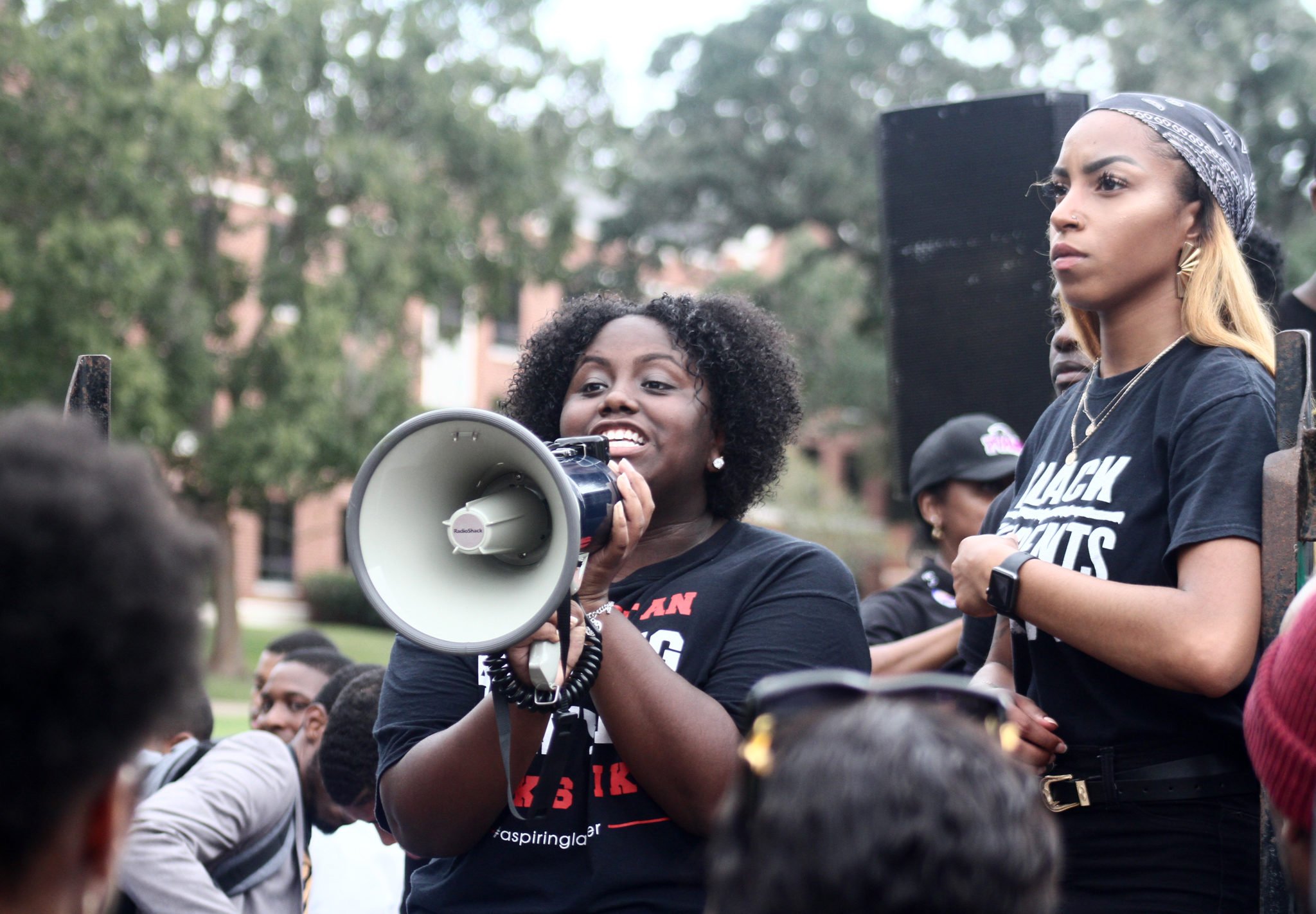
In Hempstead, No Habla Español

A version of this story ran in the January 2014 issue.
On Nov. 12, Hempstead Middle School Principal Amy Lacey took to her school intercom with an unusual announcement: Students were now banned from speaking Spanish in school. This was necessary, Lacey said, “to avoid disruption.” Rarely has a middle school intercom announcement caused such a stir. The fallout made national headlines and, once again, painted Texas as a backward state intolerant of its multicultural population.
Students at Hempstead Middle School, between Brenham and Houston, have said at least a couple of teachers took Lacey’s announcement as license to discriminate against Hispanic kids.
“There’s one teacher that said, ‘If you speak Spanish in my class, I’m going to write you up,’” eighth-grader Tiffani Resurez told KHOU-11 news.
On Dec. 2, more than two weeks after Lacey’s announcement, a letter went home from the superintendent assuring parents that “neither the district or any campus has any policy prohibiting the speaking of Spanish.”
After the story went public, school district spokesperson Laurie Bettis released a written statement that included the sentiment that the district is “continuing to ‘Create a Culture of Excellence’ which includes embracing all students of all cultural and diverse backgrounds. Our priorities are our students.”
But in a school with an enrollment that’s half Hispanic, Lacey’s actions hardly seem culturally sensitive to the students. The principal remains on paid leave until the school board finishes its investigation into the incident. The district held a public meeting on Dec. 9 for parents to air their concerns.
“I really believe [Lacey] did the right thing,” Jamie Cavender told the school board, according to KHOU. “My children don’t know if they’re being talked about or being made fun of.”
This incident in Hempstead revives a sad Texas tradition. Fear and ignorance have long motivated discrimination against Texas’ Hispanic students. According to the Texas State Historical Association’s Handbook of Texas Online, sometime between 1880 and 1930 Hispanic children faced a curriculum that was less about the three R’s and more about “the three Cs: (common cultural norms, civics instruction, and command of English).” According to the handbook, “Linguistic intolerance was reflected in English-only policies. Inferior schooling and unfavorable socioeconomic circumstances caused lower test scores, higher withdrawal rates, and lower median number of school years than the general population received.”
Hey, that sounds familiar.
While some English-only advocates like to argue that Hispanic students’ refusal to learn English leads to poor academic performance, systemic issues like economic disparities and inferior school resources are the real culprits. But why take on a difficult challenge like systemic racism when you can just ban someone else’s native tongue?
I would like to point out to the dunderheads who advocate for English-only policies in this country that the majority of people around the world—66 percent actually—are multilingual. Compare that with the United States, where only 17 percent of Americans speak more than one language. Could this have anything to do with the fact that we now rank 25th in math, 17th in science and 14th in reading among developed nations? According to the Global Languages Initiative, knowing more than one language increases cognitive abilities such as problem solving, creativity and memory. And how about this: Shanghai pupils, who outscored every other country in the world on that same test, begin learning English at age 6.
Forget the fact that Spanish was spoken for hundreds of years before English was ever uttered in Texas. This is about where our country is headed.
Through modern globalization, a large percentage of corporations in the U.S. are foreign owned or based. Learning a second and third language can only improve job prospects.
At the time of this writing, no decision has been made on what to do about Principal Lacey, but some parents are calling for her job. Considering almost 30 percent of Waller County, of which Hempstead is the county seat, is Hispanic, perhaps Lacey ought to forego banning Spanish from her school and consider learning the language herself. It could only improve her job prospects.


